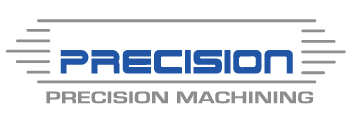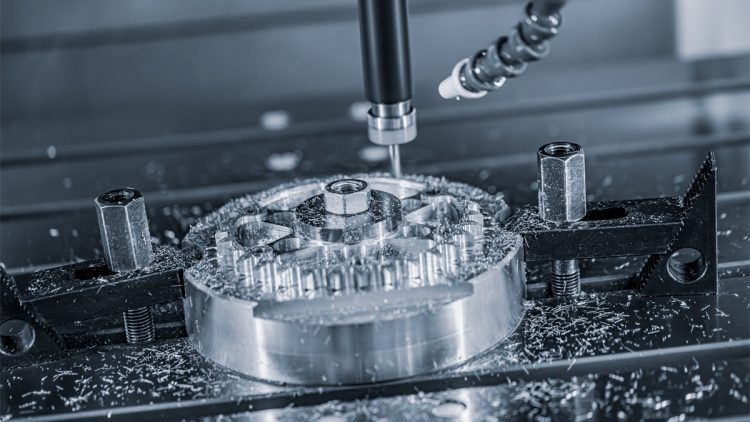Types of Machining
Machining operations have many various types to suit different requirements. These various types of machining processes are:
Conventional Machining Operations
Conventional machining operations are the traditional machining operations. These operations use tangible tools such as drill bits and cutting blades to achieve the machining action. The various types of conventional machining operations are:
Milling
The milling process employs a high-speed spinning cutting tool against a motionless workpiece. It works through a manual or automated milling machine. The cutting tools in milling machines have different shape choices. Based on the choices of cutting tools, there are a lot of different types of milling processes. General instances are end-milling machines, knee milling, face milling machine, etc.
Boring
The boring process is utilized to enlarge pre-drilled holes. The enlargement is accomplished with a single point cutting device. At the onset, a small hole is drilled with the use of a drill press or any other substitute. Boring devices can be attached to milling machines, lathes, and drill presses.
Broaching
Broaching employs a toothed cutting device for removing material from workpieces. The tool used in broaching is known as a broach. Broach takes a miniscule amount of material from a workpiece in a single move. It is used for making niche characteristics in workpieces.
Drilling
Drilling is used to make holes in workpieces. The holes are utilized for screws or artistic purposes. Drilling processes are the most typical kind of machining operation. Drilling is performed on a drill press. Drill presses can be hand driven, or CNC machine attached. The cutting tools are known as drill bits.
Grinding
Grinding is a subsidiary finishing process for improving a surfaces finish. It utilizes an abrasive rotary disc known as a grinding wheel. Grinding operations can smooth the flaws caused on a workpiece because of other machining methods. These grinders can also improve the spatial accuracy of workpieces.
Turning
Through turning, workpieces rotate around a center axis. The cutting tool is motionless and removes symmetrically from the workpiece’s surface. Turning processes are generally carried out on conical and cylindrical shaped objects. Workpieces can either be solid or hollow.
Reaming
Reaming is used to improve the precision and quality of holes. Reaming processes are used for the subsidiary finishing of a workpiece hole. It can make the holes diameter more precise, round, and with a slick surface finish. Reaming employs multi-point cutting devices. Reaming machines are known as reamers. The reaming operation follows holes produced by drilling or boring.
Planing
Planing is utilized for machining an entire surface in a single move. These machines can smoothen the whole surface of workpieces. It can also create slanted surfaces. They can also create niche characteristics on surfaces.
Sawing
Sawing utilizes a cutting tool to “saw” through workpieces. This cutting tool can be jagged or have serrated bands on the blade. Sawing is used to split workpieces into smaller portions. It is not as precise as other machining operations.
Water Jet Machining
Water jet machining is a cold-cutting method. It uses the power of high-pressurized water with a very precise stream. This stream can penetrate through harder materials in addition to softer materials easily. Abrasive particles are usually added to the water to quicken up the cutting process.
In conclusion
Traditional and non-traditional machining processes can offer better results than any other choice. The decision between the different kinds of machining operations is going to depend on priorities like expenses, preciseness, and machining speed you require. Based upon the information presented above, you can decide which machining operation is going to provide the best outcome for your needs.
East Valley Precision – Custom Machinery Specialists
East Valley Precision offers custom CNC Turning in the Chandler, Arizona and surrounding areas. When you need precision CNC turning and milling contact East Valley Precision. Call us at 480-288-6601 for more information or use our form for a quote.

